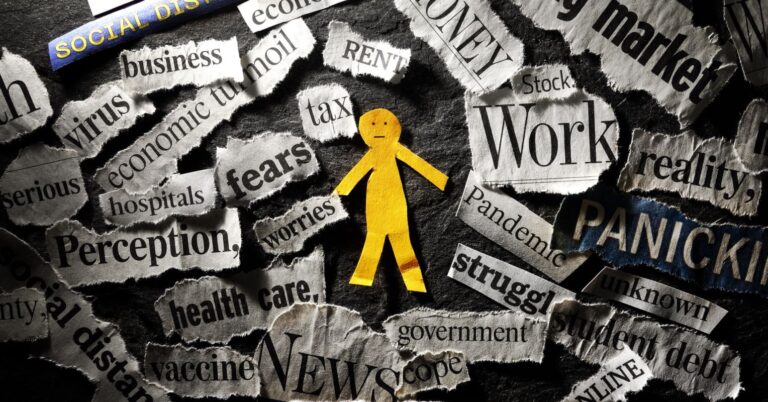
Are you letting life’s demands stress you out?
Wavelengthmedia/Depositphotos
A large body of research over the last century has proven that too much or too little stress compromises performance; just the right amount of stress and performance is at its best. This is the well-known Yerkes-Dodson curve, one of the most replicated studies in the history of psychology.
So my next question is, “What is stress?” Audiences worldwide invariably give the same answers: “My kids,” “Taxes,” “Climate change,” “My in-laws” “Political tensions,” “Social media.” The list goes on.
But what if I told you none of those reasons is actually the cause of your stress?
What is stress?
One of my areas of expertise is the stress brought on by test taking. People tell me the word “test” stands their nerves on end. So I hold up a piece of paper with the word “test” printed on it in big bold letters. Then, pointing to the paper, I say, “So you’re telling me that this is stressing you out?” “Yeah, Dr. B, tests stress me out.” “Wait a minute,” I continue, “You mean that this piece of paper, with four letters on it, is actually jumping off the table,” then I lift the paper to my throat and start chocking myself with it, “and is actually attacking you?” This always gets a laugh as the light of recognition starts to dawn.
“Test” is nothing but a four-letter word—four little letters of type on a page. T-E-S-T. It does not cause a bad reaction. It’s not doing anything. But, come the clamor of voices, “What about climate change, or wars, or pandemics, or my difficult children, or my inconsiderate neighbor?” Yes, those are all stress-provoking situations, but they are all conditions that exist outside of your skin. They are not within your control, and we all know that if you had your way, they wouldn’t be there at all. These conditions don’t really affect you, however, until you let them get under your skin.
In any situation you will have a reaction to outside events, and it will either be pleasant, unpleasant, or neutral. That’s the range. When your reaction is unpleasant, that’s what we call stress because it causes you to reject what’s happening. The string of thoughts goes something like this: I don’t like what’s going on. Something is wrong. I want this situation to change. I want it to go away. The first clue that an outside event is causing a stress reaction is that all of a sudden you cannot relax and you want things to be different. You can’t accept this moment just as it is. Whenever something has to change or you won’t be happy, that is the experience of stress.
Here’s the important question: What are you doing that causes you to feel so much stress?
The three basic stress reactions
When you’re “stressed out” you are doing one or more of the following:
- You are physically tense or having other uncomfortable bodily sensations
- You are thinking negative thoughts about yourself
- You are becoming distracted from the task-at-hand
The physical tension, the negative thoughts, and the distractions are all burdens you are placing on yourself and they negatively impact you and your performance. In other words, you are making life much harder than it has to be.
Stress is a function of disconnection
What do all of these behaviors have in common? Simply put, they all involve pushing away from the challenge, the test, pr the “stress-provoking” event. I call it disconnecting.
Think about the word disconnection. What images come to mind? Here are some that occur to me: A telephone line going dead; pulling a plug out of a socket; a wheel flying off a car.
The word disconnect is made up of two parts. The Latin origin of dis means, “separate, move apart, go in different directions.” Connect means to “fasten or tie together.” So to dis-connect means to pull apart something that is already together. What is the result? Disruption. Disharmony. Disarray.
If you’re talking on your cell phone and suddenly you can’t hear the other person, the transmission has been severed. There is no more communication. If you’re reading a book and someone trips over the lamp cord and yanks the plug out of the socket, the light goes out. If you are running the bathwater and a pipe outside bursts, the water shuts off. When disconnection takes place out in the world, things cease to function properly.
Now let’s look at what happens inside of you when you disconnect from yourself. What does that look and feel like?
First, you have to understand that you are a whole person, one package made up of three interrelated systems called the body, mind, and spirit. Since being disconnected means being separated from the whole, being disconnected inside of you means the body, mind, and spirit are detached from one another. It can also mean there is a disconnection within any one or more of the three systems.
In the next series posts we’ll explore disconnection and I’ll provide the roadmap—the formula, if you will—for keeping your stress at an optimal level. For now, if you can accept that no one or no thing is causing your stress, you’ve already come a long way to controlling it.



















+ There are no comments
Add yours